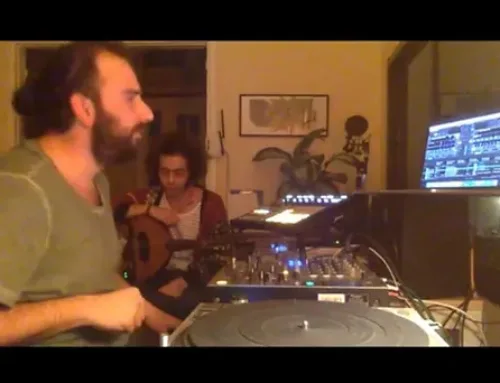Aleppo – Brest, in Manchester: Fawaz Baker Ensemble

A truly unique evening and the perfect opening of Celebrating Syria Festival.
A truly unique evening and the perfect opening to our Celebrating Syria Festival 2019 took place at the International Anthony Burgess Foundation on Saturday 2 November 2019. Fawaz Baker Ensemble took us to a special place as they performed Arabic, Syriac, Armenian Turkish and Kurdish tunes that have been passed from one generation to the next. The event was a true success as it witnessed a great turn out. We really did not want that night to come to an end.
The passing on of music from one musician to another and from one soul to another continues, echoing ancient melodies that used to be heard throughout the city, in churches and cafes; in the mosques and courtyards of stone-carved buildings. Their one common denominator is, for Fawaz Baker, their constant innovation within the constraint soft traditional structure. Eastern music offers a myriad of possibilities in terms of rhythm, melody and improvisation. It is what is referred to as modal music, composed of musical phrases, not tones or notes like most compositions in the West since the eighteenth century.
Eastern sound is based on improvisation and polyphony; a freedom that allows two melodies to evolve simultaneously within a complex architecture, letting each musician interpret and improvise. How, then, might a balance be struck between written and improvised music, between modal and tonal? The challenge is no small feat, but it does illustrate how music and art in general – is capable of creating a dialogue between contradictory forces, one where ideology falls short.
Fawaz Baker
Fawaz Baker
A lifelong musician, Fawaz Baker was a professional architect before devoting himself exclusively to music. From accompanying singers on the accordion as a child, to the keyboards and then double bass, he has explored various music spaces (hard rock, jazz, blues) and devoted years to studying musicology and the multiple influences of Aleppine music (Ottoman, Iranian, Armenian, Indian and Central Asian, including the Sufi tradition).
The war ended up tea-ring this Oud player away from hometown and from everything he had built, though he has long sought to continue in solidarity with his people: he led the Aleppo Conservatory of Music for several years where, he said, «the greatest challenge was composing between the teaching of Western classical music and that of traditional Eastern music.»
Beyond the joy and sadness, the music allows him to build new sentiments and create a new memory. As part of his commitment, Fawaz Baker spends much of his time in Syrian refugee camps in Lebanon passing on his passion for music to children, showing them how to re-learn silence, far from the noise of war. He is an associate artist at Quartz in Brest until 2020.






